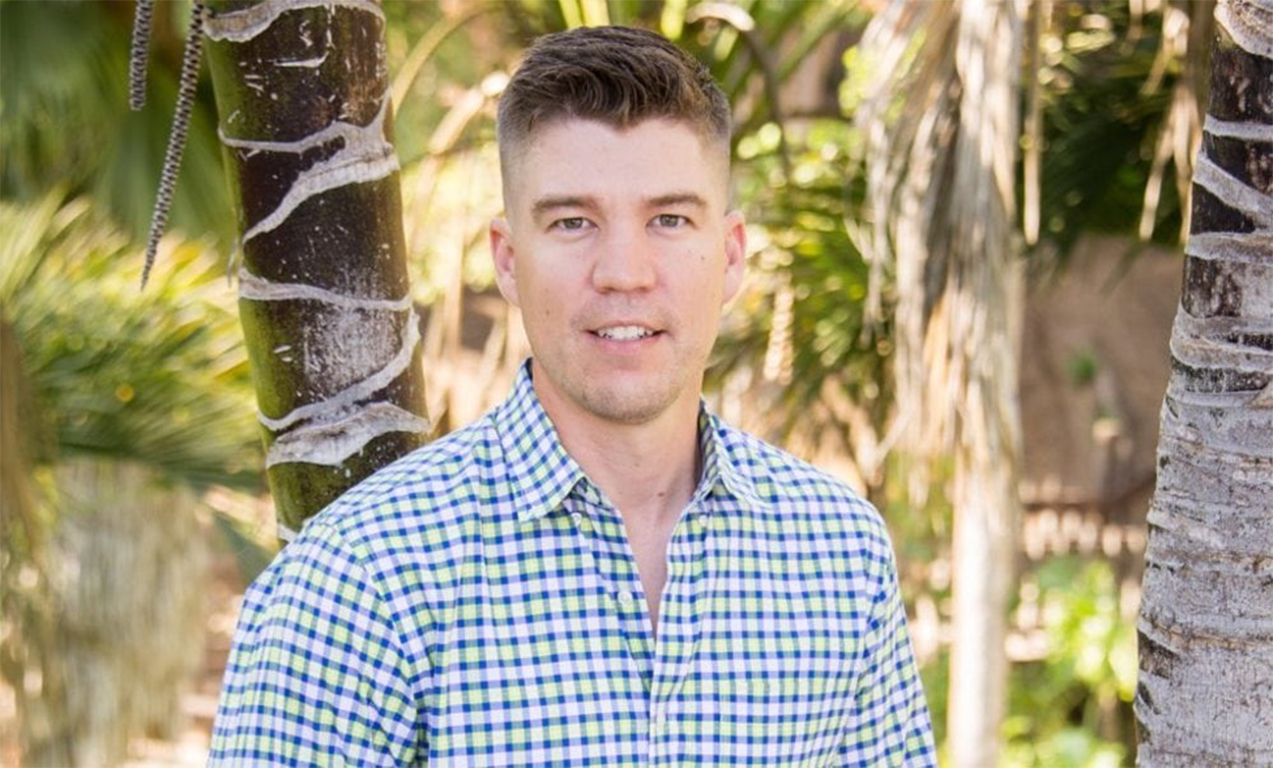Navy Veteran, Ryan Hogan is the co-founder and CEO of Hunt A Killer. Subsequent to serving in the military, Hogan commissioned and graduated from the University of Maryland with a business degree with a concentration on marketing and management. In 2017, Hogan separated from active services and decided to pursue full-time entrepreneurship.
Established in 2016, Hunt A Killer is an innovative gaming company that delivers clues, items and correspondence to its members’ doorstep. These items offer an interactive story and a fun experience to its players. Since its establishment, the company has sold over one-million boxes, gained over 100,000 subscribers, and has doubled its revenue two years in a row without outside investors.
What was your experience in the military?
As a Baltimore, Maryland native, I enlisted in the United States Navy in 2002. I graduated from the University of Maryland with a Bachelor of Science double major in Management and Marketing and was commissioned as a Surface Warfare Officer through the Seaman to Admiral-21 Program (STA-21) in 2013. I affiliated with the reserves in October 2017 and I am currently serving as Executive Officer at NR LCS SUW Mayport.
I reported to Recruit Training Command, Great Lakes, Illinois in November 2002 and began my career as an airman recruit. I then graduated from Naval Aircrew Candidate School (NACCS) and Aviation Machinist Mate (AD) “A” School in Pensacola, Florida, in 2003 and reported to Airborne Weapons Systems Training School (AWSTS) where I learned Airborne Mine Countermeasures (AMCM) systems. After certifying as an AMCM Crew Chief on MH-53E helicopters and serving four years at HM-14, I transferred to HX-21 as a Test and Development aircrewman flying missions in the MH-60S.
Upon completion from the STA-21 program, I commissioned tours include service as the Communications Officer on the USS COMSTOCK with a 2014 deployment to the Arabian Gulf. I was then selected to be Officer-In-Charge for Surface Warfare Detachment Six (LCS SUW DET 6) attached to COMLCSRON ONE and served aboard the USS Fort Worth and USS Freedom.
I was released from active duty in 2017 and affiliated with the Navy Reserve U.S. TENTH Fleet (C10F). As a part of the N3 department, I stood watch floor duties and led the Commander’s Intelligence Briefing. I transferred to Naval Information Warfare Systems Command (NAVWAR) holding the N1 billet at NR NAVWAR 301 and the national NAVWAR N3B billet.
My personal awards include: the Navy and Marine Corp Achievement Medal (two awards), Navy “E” Ribbon (two awards), and Navy Good Conduct Medal (two awards).
Tell us about your transition from military to civilian life?
I started Hunt A Killer back in 2016 while I was still in active service, but then transitioned in 2017 from active service to the Navy Reserves and moved directly into entrepreneurship. Hunt A Killer had achieved enough scale, which allowed me to support my family. We remained in San Diego a full year post-separation while I managed the Baltimore-based company. We eventually opened Hunt A Killer offices in Seattle and used the final PCS to move north. Currently, I’m still in the Navy Reserves, but managing Hunt A Killer full time.
What is your business and what do you do?
Hunt A Killer is an immersive entertainment company that delivers realistic episodic clues, items and correspondence to players’ doorsteps each month. Members are put to a test, playing the role of a detective to unravel the mysteries of each unique case. We have multiple games, ranging from subscription boxes to all-in-one gaming experiences. With the subscription boxes, there are six “episodes” in each season, each box containing more clues and evidence that points toward the solution of a crime. We also have our premium boxes, our all-in-one gaming experiences that contain all of the clues you will need to solve the mystery.
One a day to day basis, I lead the organization and drive the overarching strategy towards our mission of bringing people around the world together.
What are 3 things you learned in the military that you have applied to your business?
- Resilience is key. The only thing that matters in business is how you and the organization deal with adversity. Understanding the ends is critically important to managing the means. Knowing when to give up on the means to achieve headway elsewhere is just as important as knowing when to drive forward.
- Have a plan. Then be prepared to immediately pivot. Business starts with an idea that transforms into a strategy. Writing a 60-page business plan serves little purpose as the strategy will change hundreds of times in the first year. Being agile and pivoting when necessary is foundational. But also understanding when multiple contingency plans are needed is just as important.
- Being a leader starts with being a follower. I had the privilege of serving as an enlisted Sailor before earning a commissioning. This allowed me to observe different perspectives and understand the importance of empathy and compassion. Greatness through your followers is achieved through inspiration rather than fear. Leaders exist to serve, not demand.
How have you used your success to send the ladder back down? (pay it forward)
I have failed big, and each day I fail in some capacity. I use my lessons learned to help fellow veterans avoid the same mistakes. On the USS Comstock I created and led an entrepreneur group while forward deployed to the Arabian gulf. I broke down the steps to start a business from concept to legal entity over a seven-month deployment.
After separating, I have continued to mentor and coach military colleagues on their entrepreneurial journey. From NASCAR, to eSports, to wedding planning, to a scalable travel business, I find incredible purpose in helping others achieve their personal goals.
Where can readers find you on social media?
Linkedin: https://www.linkedin.com/in/ryanehogan/


